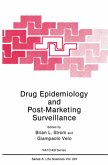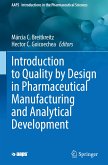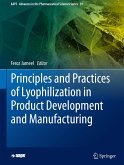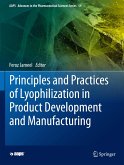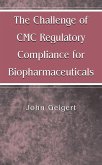Strategic decision-making focusing on economics is the fundamental requirement to generate efficiency and improve productivity in any manufacturing environment. In the 21st century, the science of drug development is an established field that requires a dedicated and synergistic partnership between various subject matter experts. Unfortunately, pharmaceutical research is complicated, time-consuming, attritive, and costly, with development costs ranging from $4 billion to $11 billion per commercialized drug. There are more than 750 biotech and big pharma companies in the US that are developing new drug products for a vast number of therapeutic indications. Due to the high attrition rate in clinical trials, a small percentage of these drugs get commercialized. Still, a very high amount of resources are being spent on drug development from a societal perspective.
Despite being an economically intense activity, the current state of drug product development makes a limited effort to integrate economics into product design and development. For example, pharmaceutical scientists are excellent at a data-driven decision-making process that requires technical elements and a few strategic elements. However, there is minimal integration of financial valuation elements (commonly employed in other high-tech industries such as fine chemicals, automotive, aerospace, etc.) into pharmaceutical drug development. Unfortunately, this hurts the sustainability of the health system of which these products will be a part in the future.
A desirable future state integrates fundamentals of economics in product design and development so that the decision-making is parameterized, the cost of goods can be lowered, wastage can be reduced, patient-centricity is built into the design, and manufacturing/distribution efficiencies can be gained. The financial benefits of such an approach could allow for these savings to be passed on to the stakeholders and improve the value proposition of pharmaceuticals, which is critical to maintaining the innovation potential. This book hopes to introduce the reader to this desired future state of pharmaceutical drug development.
Despite being an economically intense activity, the current state of drug product development makes a limited effort to integrate economics into product design and development. For example, pharmaceutical scientists are excellent at a data-driven decision-making process that requires technical elements and a few strategic elements. However, there is minimal integration of financial valuation elements (commonly employed in other high-tech industries such as fine chemicals, automotive, aerospace, etc.) into pharmaceutical drug development. Unfortunately, this hurts the sustainability of the health system of which these products will be a part in the future.
A desirable future state integrates fundamentals of economics in product design and development so that the decision-making is parameterized, the cost of goods can be lowered, wastage can be reduced, patient-centricity is built into the design, and manufacturing/distribution efficiencies can be gained. The financial benefits of such an approach could allow for these savings to be passed on to the stakeholders and improve the value proposition of pharmaceuticals, which is critical to maintaining the innovation potential. This book hopes to introduce the reader to this desired future state of pharmaceutical drug development.


